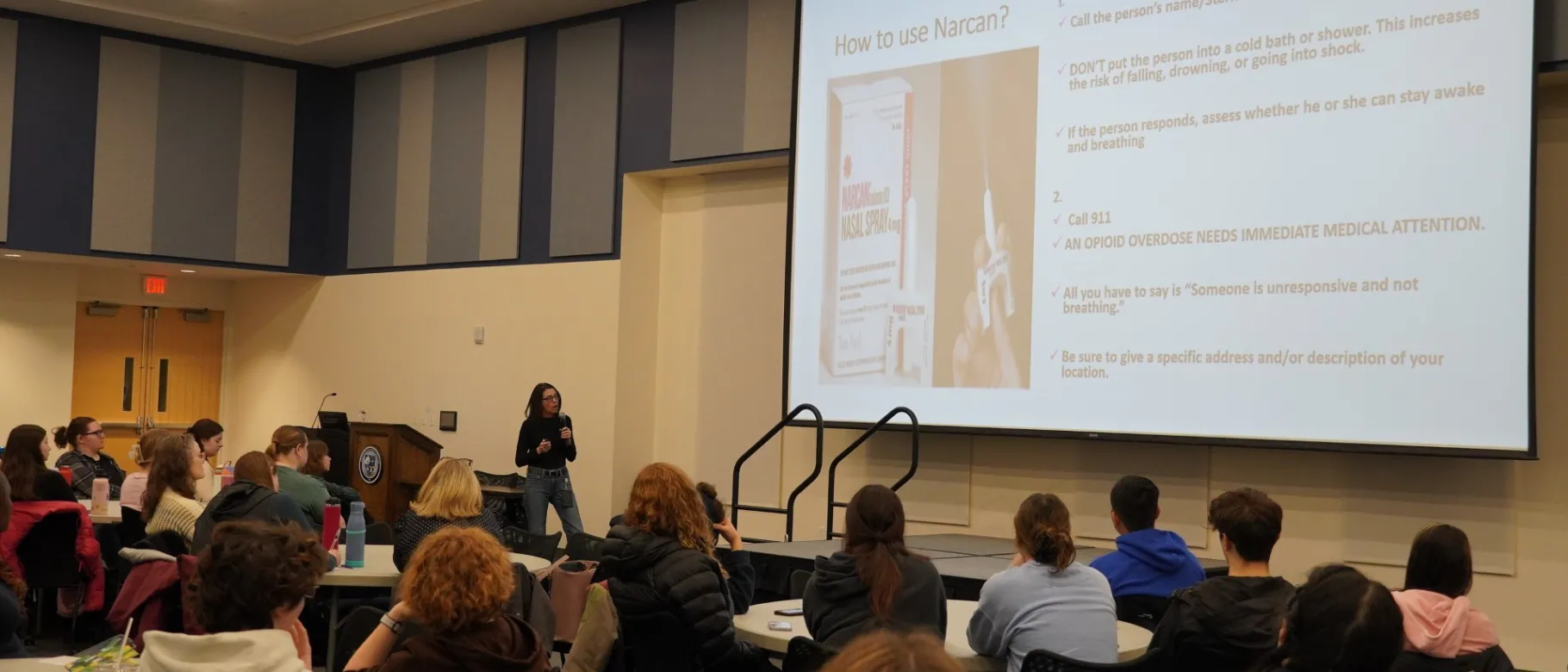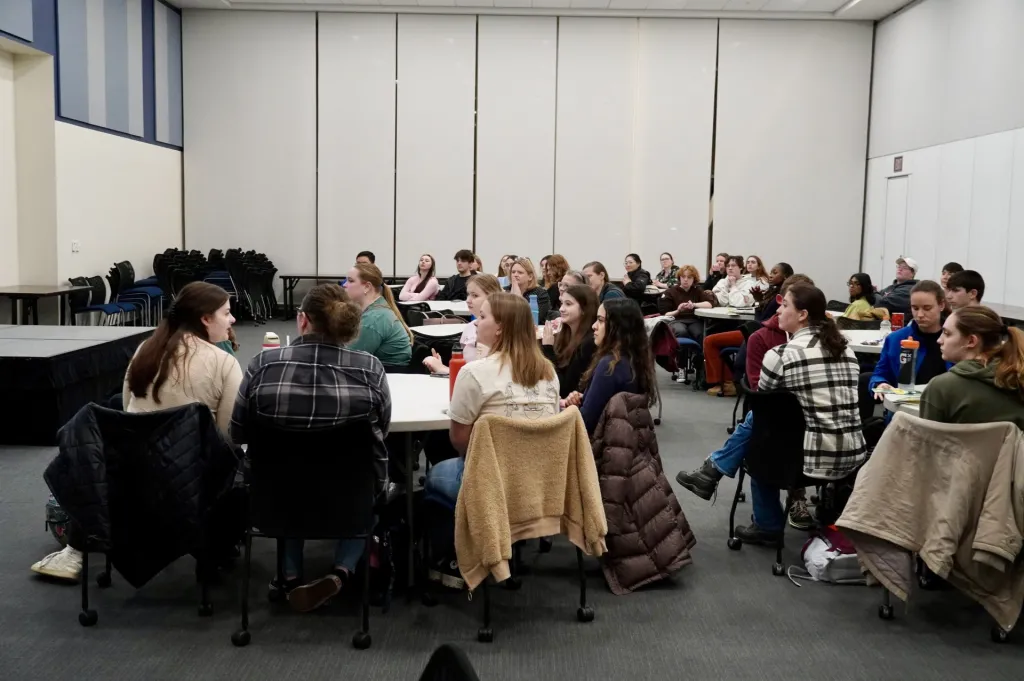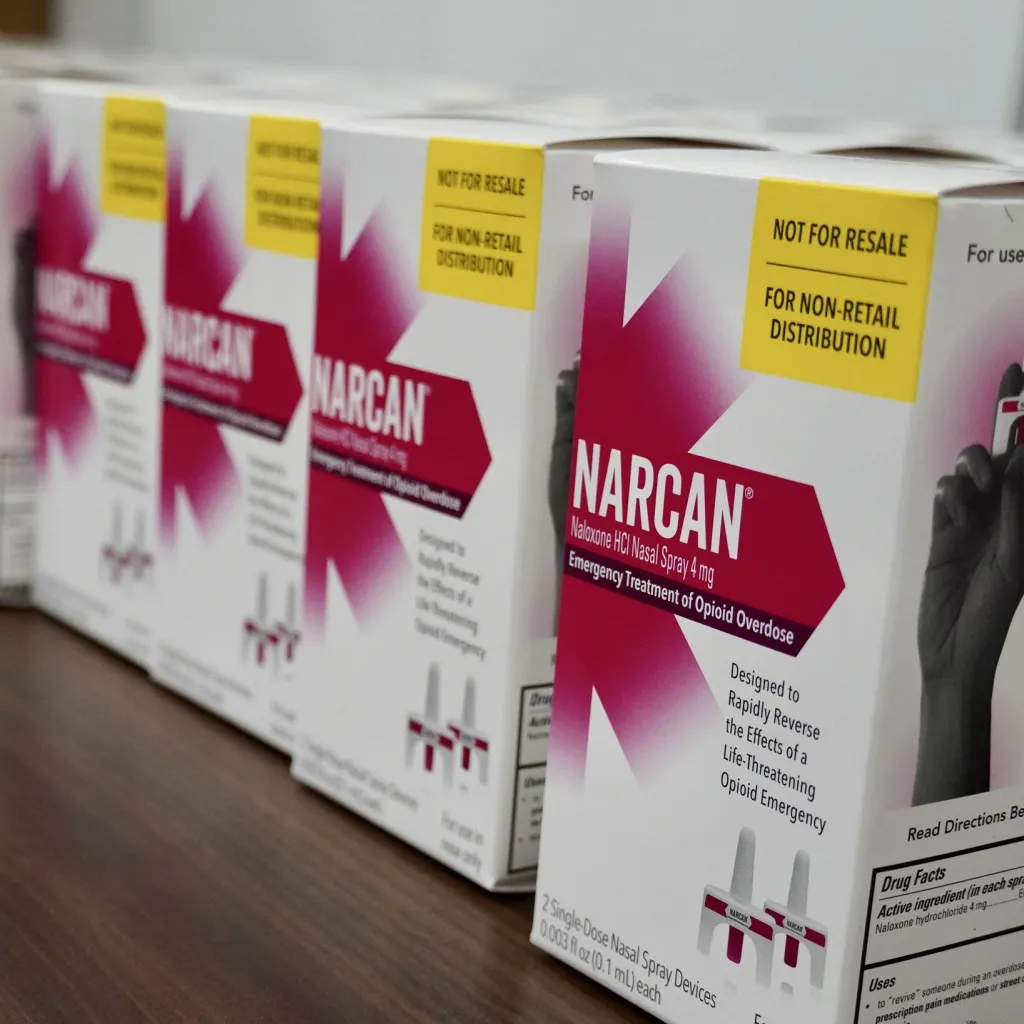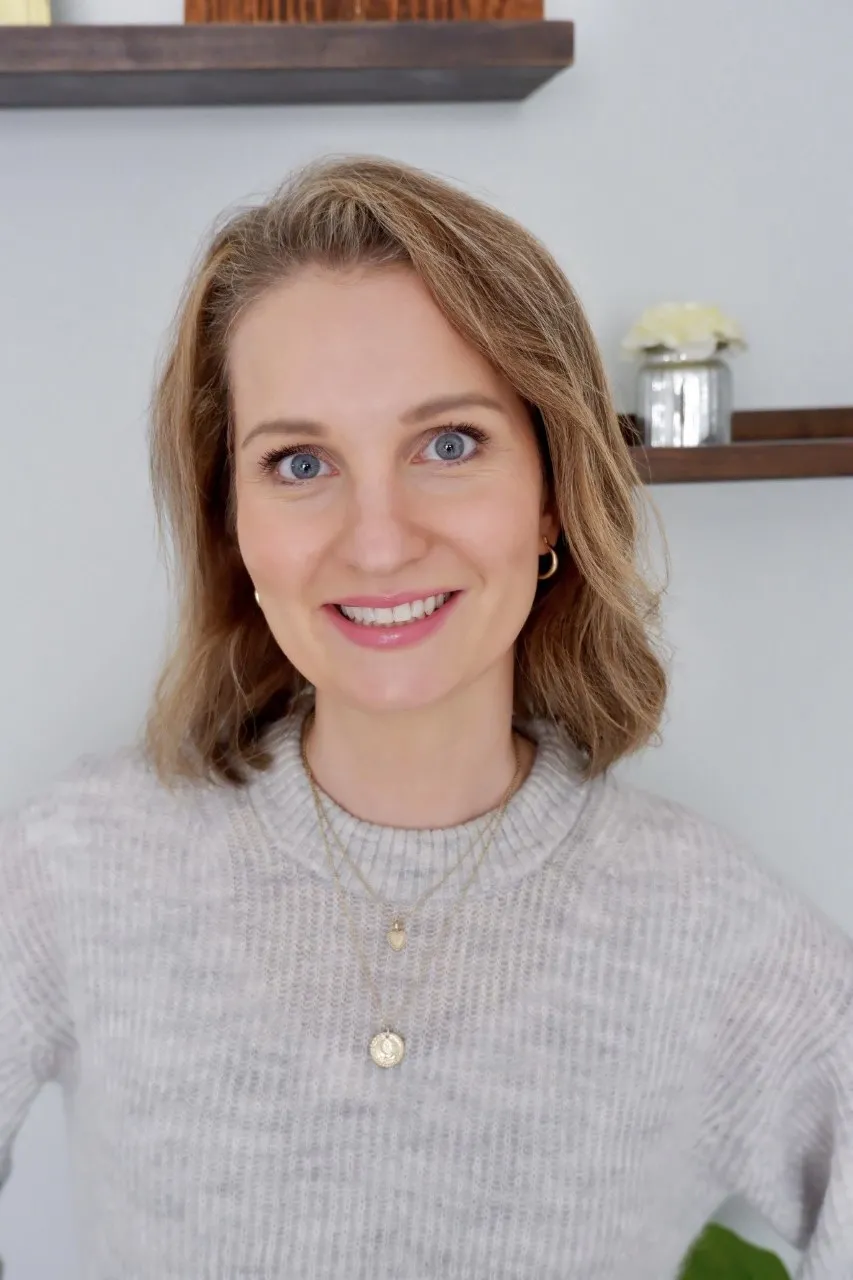UNE hosts naloxone training workshop in collaboration with Sweetser

The University of New England School of Social and Behavioral Sciences, in collaboration with mental health provider Sweetser, hosted a naloxone training workshop on the Biddeford Campus on Feb. 6. The workshop covered a variety of topics, such as recognizing the signs of an opioid overdose, administering naloxone nasal spray, and providing care until emergency medical services arrive.
Complimentary naloxone kits were provided to all attendees upon completion of the training, helping to ensure they are prepared to intervene in an overdose emergency. The kits were generously provided by Sweetser’s OPTIONS (Overdose Prevention Through Intensive Outreach, Naloxone, and Safety) Initiative.
Lacey Bailey, LADC, B.S., a licensed alcohol and drug counselor and OPTIONS clinician at Sweetser, led the workshop, which drew more than 60 participants, including students, faculty, professional staff, and members of the broader community.
Sweetser is one of the largest providers of mental health and recovery services in Maine, offering comprehensive community-based treatment across the state. Bailey, who has expertise in substance use disorder and harm reduction, shared practical guidance with participants during the session and answered questions related to overdose prevention and response.
“I feel truly lucky to have had the opportunity to attend the naloxone training,” remarked Jayden Stevens (Psychology, ’27). “The opioid epidemic is a nationwide crisis, and it is very valuable to have people trained in using this treatment. The workshop was very educational, and it feels good knowing that I could save a life if need be.”
“It was eye-opening to hear about the stigma that exists among medical professionals around substance abuse,” added Ella Murthi (Medical Biology, ’26). “I believe that educational events such as this will help to shift the conversation about this topic.”
Also in attendance was Cheri Anderson, M.A., director of the Coastal Healthy Communities Coalition (CHCC). Under the administration of UNE, CHCC leads public health initiatives to achieve social, policy, and environmental changes. During the workshop, Anderson shared various resources related to mental health and substance misuse.
“We are grateful for the partnership of our local community organizations in making this workshop possible,” said Jennifer Stiegler-Balfour, Ph.D., associate professor of psychology and assistant academic director of the School of Social and Behavioral Sciences. “By working together, we can make a tangible impact in combating the opioid crisis and promoting health and safety in our community.”
Stiegler-Balfour organized the event in collaboration with UNE students and PSI CHI Honor Society and Psychology Club members Lauryn Alley (Psychology, ’24), Grace Curely (Neuroscience, ’24), Sarah Gray (Psychology, ’25), and Gracie Ouellette (Psychology, ’24).
“The statistics of opioid use are startling to hear, but after learning how many people in the community saved lives using naloxone, I am hopeful for our future, especially with so many people attending this event,” Gray commented.
“I am so grateful for Lacey's willingness to provide us with this incredibly valuable training and for all of the students who attended,” said Ouellette.
Michael Burman, Ph.D., professor and academic director of the School of Social and Behavioral Sciences expressed his gratitude to the organizers.
“Destigmatizing addiction and expanding the use of life-saving tools like naloxone are our best tools for combating the devastating effects of the opioid epidemic,” Burman said. “This event will help make the entire UNE community safer.”
The naloxone workshop underscores UNE’s commitment to addressing substance abuse issues and promoting well-being among its students and the wider community. Through education, outreach, and collaboration, UNE continues to play a vital role in supporting efforts to prevent opioid overdose and save lives, Stiegler-Balfour said.
A second naloxone training event hosted by the UNE Pharmacy Student Association is scheduled for April 17 on the Portland Campus for the Health Sciences. For more information about naloxone kits and to access additional resources, visit www.knowyouroptions.me.


